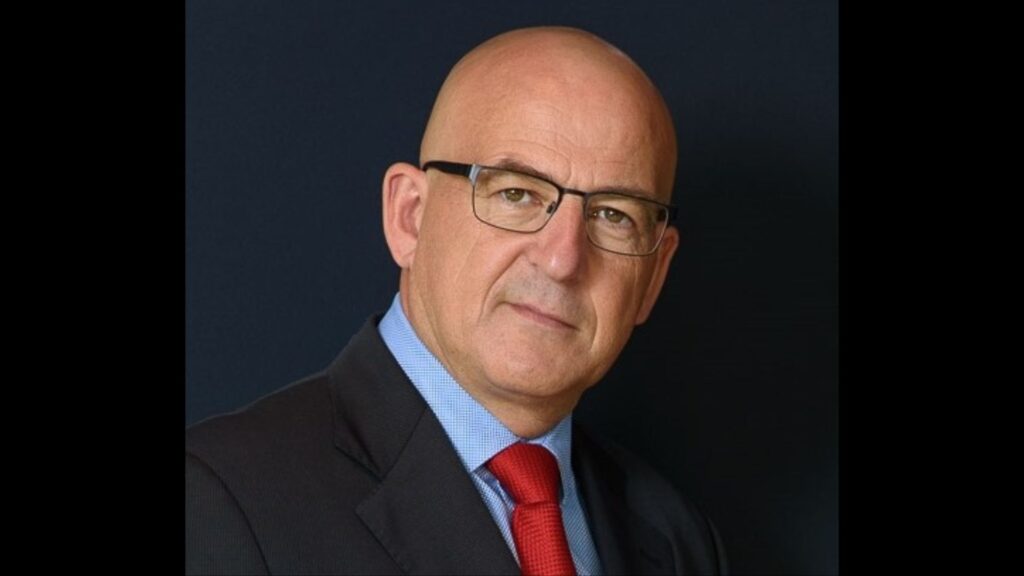Science
They Thought It Was an Ordinary Grave: Discovering a King from 3,500 Years Ago
13 February 2026

Pop psychology in Poland trails its scientific counterpart by some 70 years, struggling to align with contemporary scientific advancements. What is more, the curriculum in Polish universities often reflects theories and practices that are decades out of date – says Tomasz Witkowski PhD, a prominent psychologist and author who founded the Polish Skeptics Club, in a conversation with Dariusz Rostkowski.
Dariusz Rostkowski: Sextus Empiricus, an ancient philosopher – skeptic, and also a physician, protested against accepting any principles in science without proof. It has been 2,500 years, and the problem is still relevant, perhaps even more pressing than before. Why?
Tomasz Witkowski, PhD*: Because the primary mental principle we apply in life is to accept statements that are adequate to our perception of the world. Indeed, we process various information, but we easily reject those that contradict our vision of the world, while we readily accept those that are consistent.
Scientists should be particularly critical.
Scientific thinking is uncomfortable and exhausting. According to Karl Popper’s principle of falsification, if we have a hypothesis, or scientifically thinking, we should try to refute it, not to confirm it. However, we usually seek information that reinforces our beliefs and our vision of the world, and ignore and deliberately reject those that are contrary. Scientists are no different.
Sextus fought against contrived theories, which were plentiful in Greece.
Yes. He tried, with partial success, to combat the plethora of various strange philosophical concepts. He managed to clear up and organize a significant portion of these theories. And this was a clear contribution of skeptics to Greek and European thought. However, ancient skeptics were quite radical, as they said that making any statements about reality is unwarranted.
This seriously undermines the purpose of science.
We today do not go so far because we adopt the Aristotelian concept, which states that reality exists and is knowable. Truth means the conformity of theories to reality. Science is practically impossible to practice under any other assumption. Modern concepts such as postmodernism and various other forms of solipsism do not allow any knowledge beyond subjective, introspective understanding. With such assumptions, we could not study matter, living organisms, or any other things that exist.

Today, many scientists oppose pseudoscience – representatives of analytical philosophy loudly stated this. Unfortunately, nonsensical theories are thriving.
Their sheer number is also a statistical effect – simply, the 20th century was a time of rapid acceleration in the development of science. Already in the 1960s, it was calculated that the increase in knowledge was exponential. More scientific articles are published in a single year today than were published in the history of humanity up to the 19th century. So, one year brings more publications than the history of science until the mid-20th century.
That sounds unimaginable…
Yes, but it’s not the only thing we couldn’t have imagined. When I was a child in the early 1970s, a teacher asked us to draw what the world would look like in 50 or 100 years. We sketched hovercraft, and orbiting hotels, and planned trips to the Moon. But no one imagined that people would be burning cell phone antennas, rejecting vaccines, and engaging in similar nonsense. If a boy in elementary school didn’t understand how a Wankel engine worked, he was considered uneducated. If he wanted to catch up, he would run to the kiosk, buy Young Technician magazine, and read up on it. However, at some point, we lost the ability to keep up with everything.
Today, there probably isn’t a person who understands exactly how a cell phone works, and all its components. In such a situation, where there is intense growth in knowledge, people start to get lost. Postmodernism emerges, Jacques Derrida comes along with his deconstructionism, claiming that there is no reality, that essentially everything is language, and that objective truth does not exist. Postmodernists have led to a situation where every person, who understands the world through some mumbo-jumbo, bizarre hypotheses, chakras, etc., is an equal participant in serious debate. Their strange vision has been cognitively leveled to the same status as the concepts of scientists.
However nonsensical the claims may be, they are taken seriously…
Yes. And this has caused a breakthrough. The world, based on the achievements of science, was progressing towards betterment but suddenly started to scatter in various directions. This is compounded by the New Age, which thrives in postmodernism. We start spouting nonsense and demand respect for this nonsense. We require that others listen to it attentively, accept it, etc. This is the main reason why pseudoscience is now flourishing!
We recommend: The Truth About Psychopaths. “There Are a Lot of Stereotypes Behind this Concept”
You became famous for a provocation that exposed the shallowness of the psychological community. Pretending to be a non-existent French psychologist Renata Aulagnier, you published an article titled “Knowledge Straight from the Field” in the monthly magazine Charaktery; this work was 100% a hoax. But it did not shake the community.
That experience convinced me that there is no such nonsense that one could invent that does not already exist. A while after my provocation, I found a man in Germany who sells devices for analyzing the morphogenetic field. So, that nonsense existed before Renata Aulagnier supposedly invented it! And I didn’t pull the idea from there – someone else came up with it and probably believed it!
Incredible…
Nonsensical theories today proliferate at an unprecedented rate. Once, a doctor friend and I were contemplating creating a medical hoax. I suggested we could invent and promote a diet based on eye color. We were about to proceed, but something made me check the internet. It turned out that such a theory already existed! The absurdity I blurted out off the top of my head was doing quite well and was being “sold” as knowledge.
In one of your publications, you mentioned that in the past, even if a disaster occurred, no one immediately called for a team of psychologists, but now if someone has a sore arm, they quickly run to a psychotherapist. Why this rush?
For clarity: let’s separate two things: serious psychology – let’s call it scientific, which is dealt with by professors at the best universities worldwide, and pop-psychology, in opposition. Pop psychology is flourishing, but in Poland it is about 70 years behind scientific psychology, meaning: it does not keep up with changes. And what we see at Polish universities is usually about 50 years outdated…
Can you give an example?
Psychoanalysis. Its fundamental assumptions have not been confirmed. Only parts of this theory have survived, such as the mechanisms of defense, while the basic premise of psychoanalysis, the dynamics of these unconscious, repressed contents, etc., has no empirical research backing. There is no indication that it is true, and its application can be harmful. And Polish therapists stick to this method…
Are they unaware?
Not necessarily. They simply earn from it. It brings them tangible benefits! Unfortunately, not to the patients! It has even harmed many of them.

And why do ordinary people submit to it?
We are flooded with pseudopsychology. Just open any glossy magazines or popular websites.
Do serious psychologists accept this?
As you can see, not all do. But the issue is not simple and one should ask: who cares about verifying pseudopsychological content? Patients are too busy and lack the cognitive resources to verify therapists. They seek help, grabbing the first hand they see nearby. Meanwhile, the majority of the psychotherapist community does not address the issue because… it’s not in their interest, after all, they make money from patients. On the other hand, if a public debate on the value of psychotherapy in general begins, everyone will lose: those who are faithful to scientific achievements as well. Because patients will think: “wait, something is wrong here with these therapists.”
Efforts are currently underway to develop legislation pertaining to the psychotherapist profession, which will define the necessary qualifications and criteria that must be met.
Yes, and work on the law regarding the psychology profession has been going on for decades and will continue. Partly because there has never been a consensus or a common stance reached, even within the Polish Psychotherapy Federation. Therapists are not interested in this, and scientists even less so, as they look down on practitioners. And those who still do not have mental health problems also do not care.
In this way, we tolerate pseudoscience.
Yes. And pseudopsychologists make money. They introduce new “authoritative” methods often just to keep a patient. For example: if they “diagnose” someone, they have a regular client in their office.
We recommend: Preaching Green and Flying High: The Double Standards of Environmental Protection
So are healthy people also being treated?
Please consider two facts: on one hand, if we believe the media, we are facing an unprecedented wave of mental disorders and illnesses in human history; on the other, there is widespread access to psychotherapeutic services. Let’s compare these two figures. Something is not right! If the number of therapists is rising so sharply, why is the incidence of illnesses also increasing? If every other building in a city was a dental clinic and people’s teeth were still falling out, we would need to question what these dentists are doing.
Stanislav Andreski, a British sociologist of Polish origin, used to say that if firefighters are putting out a fire and it keeps getting bigger, we need to check what they have in their hoses, in case they are accidentally adding fuel to the fire. I am convinced that this so-called epidemic of mental disorders we are dealing with is created by therapeutic environments, which… want to make a living.
And they introduce new disease entities…
Yes. There are so many different diagnoses that practically everyone can be classified as sick. However, when we look at effectiveness, it is poor. For example, a meta-analysis of 50 years of research on suicide prevention and self-harm has shown that there are many more publications on this subject than before. However, the effectiveness of the methods has not increased by even a fraction of a percent. It is slightly below 9%.
How then, in this “over-therapized” world, not to go mad?
The first basic thing: avoid the media! Studies have proven that after the outbreak of the Covid-19 pandemic, those who intensely followed social media had more mental health issues than those who did not engage. The media are dominated by therapeutic culture and reflexively prompt us to diagnose ourselves. In 1952, when the first classification of mental disorders – DSM 5 – was published, it contained 106 disease entities; now, there are significantly more than 600. And in the media even more, because they expand their scope so that we are dealing with the overdiagnosis of many disorders, especially ADHD and depression.
And by reading media reports, we diagnose ourselves…
Yes. It works like the syndrome of a second or third-year medical student who, as he delves deeper into his field, begins to suffer from all possible diseases he learns about. Therefore, the first rule: is not to diagnose yourself too quickly. And second, if we have made that first step, it’s worth considering whether this diagnosis requires intervention from someone outside. Our bodies are very resilient.
Not all of them.

The vast majority. Remember, we live in times of prosperity and safety like never before in the entire history of humanity, about 300,000 years since Homo sapiens evolved from hominid ancestors. For most of that time, a person could not sleep through a full night during their entire life without waking up multiple times to… not become food for some other animal.
Even in the 19th century, out of every three children born in a family, one died before reaching maturity. A woman giving birth said goodbye to her relatives because there was a very high chance of dying during childbirth. Our grandparents survived at least one war, if not two, plus some kind of revolution. These families were constantly in danger of not surviving the next winter because they might run out of food, or another official might come to take the eldest son to the army, etc. The stress we are under and the burdens we face are simply nothing compared to what our ancestors endured.
So we don’t need such urgent help as the media suggest?
The belief that we need immediate support is a result of the marketing impact of the therapeutic community. It’s worth considering another perspective. One of my interlocutors, cited in books – Vikram Patel, a psychiatrist from India, has dedicated himself to fighting mental illnesses in developing countries, where often one hospital serves a large region. And he, as a practitioner, repeats that everyone mentally falls ill at least several times in their lifetime. Just as each of us catches a cold or experiences some other somatic ailment. But that doesn’t mean we run to a doctor with every such problem.
If we have a common infection and the symptoms do not worsen, we treat it ourselves. The same goes for mental disorders. And if such a situation requires intervention, it should be the simplest one confirmed by research, not complicated therapy. Patel applies only such interventions. Often they are based on simple conversation. He teaches this to ordinary people in Africa, Asia, and South America. These people successfully apply his methods. And it turns out they are just as effective, sometimes even more so, than psychotherapists.
* Dr. Tomasz Witkowski, psychologist – supported research on social psychology and motivation at the university of Bielefeld and Hildesheim. Author of more than a hundred popular science articles and a few dozen scientific publications. His work was published in Skeptical Inquirer, Polish Psychological Bulletin, Journal of Social Psychology, British Journal of Social Psychology, and The Scientific Review of Mental Health Practice.
Translation: Klaudia Tarasiewicz
Polish version: Pop-psychologia. Zaczynamy mówić głupoty i żądamy dla nich szacunku
Science
13 February 2026

Science
12 February 2026


Zmień tryb na ciemny